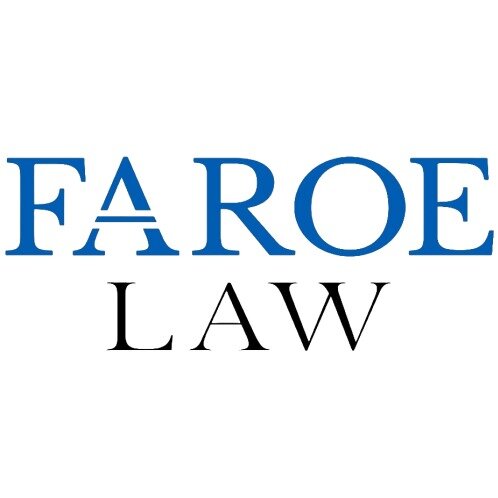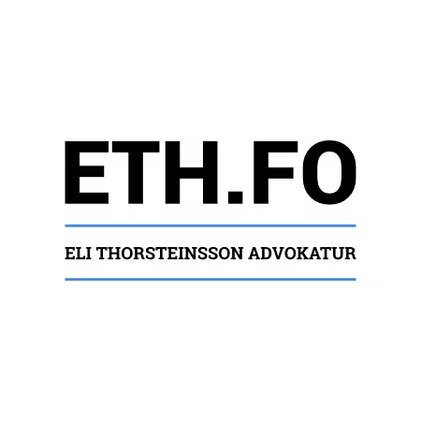Best Debt Capital Markets Lawyers in Faroe Islands
Share your needs with us, get contacted by law firms.
Free. Takes 2 min.
Or refine your search by selecting a city:
List of the best lawyers in Faroe Islands
About Debt Capital Markets Law in Faroe Islands
Debt Capital Markets (DCM) refer to the financial markets where entities such as companies, financial institutions, and governments raise capital through the issuance of debt instruments, including bonds, debentures, and promissory notes. In the Faroe Islands, DCM is a developing field influenced by both local finance regulations and Denmark’s legal framework, reflecting the territory’s status as an autonomous region within the Kingdom of Denmark. The market allows for fundraising, corporate financing, and investment opportunities for both local and foreign entities interested in Faroese ventures.
Why You May Need a Lawyer
Navigating Debt Capital Markets in the Faroe Islands can be complex, especially given the interplay of local and international rules. You may need legal assistance in situations such as:
- Structuring and issuing bonds or other debt instruments
- Ensuring compliance with regulatory requirements for public and private offerings
- Negotiating and drafting transaction documents
- Advising on cross-border elements and investor protections
- Handling disputes or defaults related to debt securities
- Assisting with taxation and reporting obligations
- Understanding investor rights and remedies
Local Laws Overview
The Faroe Islands operate under a unique legal system, drawing from Danish law as well as local regulations administered by Faroese authorities. Key aspects relevant to Debt Capital Markets include:
- The regulatory authority of the Danish Financial Supervisory Authority (Finanstilsynet) in coordination with Faroese government bodies
- Requirements for the issue and listing of debt securities, often reflecting European Union standards due to Denmark’s EU obligations (though the Faroe Islands are outside the EU, some regulations may still apply)
- Disclosure and prospectus obligations to ensure investor protection and market transparency
- Taxation of interest income and capital gains, which may differ for residents and non-residents
- Corporate law considerations for entities wishing to raise capital through debt markets
- Reporting and ongoing obligations for issuers of listed debt securities
- Enforcement of creditor rights and insolvency procedures as per Faroese and Danish law
Frequently Asked Questions
What are Debt Capital Markets?
Debt Capital Markets are venues where entities raise funds by issuing debt instruments, such as bonds, to investors. These markets enable borrowing for business growth, infrastructure, and other needs.
Can foreign entities participate in the Faroese Debt Capital Markets?
Yes, foreign entities can typically participate, but they must comply with local registration and disclosure requirements. Legal advice is recommended to navigate licensing and tax issues.
What regulations govern the issuance of bonds in the Faroe Islands?
Bond issuance is mainly regulated by Faroese laws, influenced by Danish financial regulations and, where applicable, international standards. Regulatory approval and proper disclosures are necessary.
Are there prospectus requirements for issuing debt securities?
Yes, issuers are generally required to prepare a prospectus disclosing key information about the securities and the issuer, subject to certain exemptions depending on the size and nature of the offer.
How are debt securities taxed in the Faroe Islands?
Interest income from debt securities may be subject to local taxation. The specific treatment will depend on the status of the investor (resident or non-resident) and applicable tax agreements.
Do local companies need to be listed on an exchange to issue bonds?
Listing is not always required, but listed securities offer more transparency and liquidity. Unlisted offerings may be subject to different legal and disclosure standards.
Who supervises Debt Capital Markets in the Faroe Islands?
Supervision is carried out by the Danish Financial Supervisory Authority in collaboration with Faroese authorities, depending on the nature of the issuer and the transaction.
What protections exist for investors in Debt Capital Markets?
Investors benefit from disclosure requirements, regulatory oversight, and legal protections against fraud and misrepresentation. Specialized advice helps safeguard investor interests.
How can companies resolve disputes related to debt instruments?
Disputes may be resolved through negotiation, mediation, arbitration, or litigation in Faroese or Danish courts, depending on the contract terms and applicable law.
Is it necessary to have a local counsel for DCM transactions?
While not always strictly necessary, engaging local counsel is highly recommended to ensure regulatory compliance and address any unique aspects of Faroese law and practice.
Additional Resources
If you are seeking legal advice or further information about Debt Capital Markets in the Faroe Islands, consider exploring:
- The Faroese Ministry of Trade and Industry - for information on business regulation
- The Danish Financial Supervisory Authority (Finanstilsynet) - for regulatory guidelines
- Local law firms specialized in finance and securities law
- The Faroese Tax Authorities - for advice on tax treatment of debt instruments
- Chamber of Commerce and financial industry associations
- Academic publications and guidance from economic research institutions
Next Steps
If you need legal assistance with Debt Capital Markets in the Faroe Islands:
- Define the specific nature of your issue or transaction
- Gather any relevant documents, such as contracts, prospectuses, or notices
- Contact a reputable legal adviser with experience in Faroese and Danish financial law
- Discuss your objectives, potential risks, and required compliance steps
- Stay informed about ongoing obligations and regulatory updates
Lawzana helps you find the best lawyers and law firms in Faroe Islands through a curated and pre-screened list of qualified legal professionals. Our platform offers rankings and detailed profiles of attorneys and law firms, allowing you to compare based on practice areas, including Debt Capital Markets, experience, and client feedback.
Each profile includes a description of the firm's areas of practice, client reviews, team members and partners, year of establishment, spoken languages, office locations, contact information, social media presence, and any published articles or resources. Most firms on our platform speak English and are experienced in both local and international legal matters.
Get a quote from top-rated law firms in Faroe Islands — quickly, securely, and without unnecessary hassle.
Disclaimer:
The information provided on this page is for general informational purposes only and does not constitute legal advice. While we strive to ensure the accuracy and relevance of the content, legal information may change over time, and interpretations of the law can vary. You should always consult with a qualified legal professional for advice specific to your situation.
We disclaim all liability for actions taken or not taken based on the content of this page. If you believe any information is incorrect or outdated, please contact us, and we will review and update it where appropriate.
Browse debt capital markets law firms by city in Faroe Islands
Refine your search by selecting a city.













